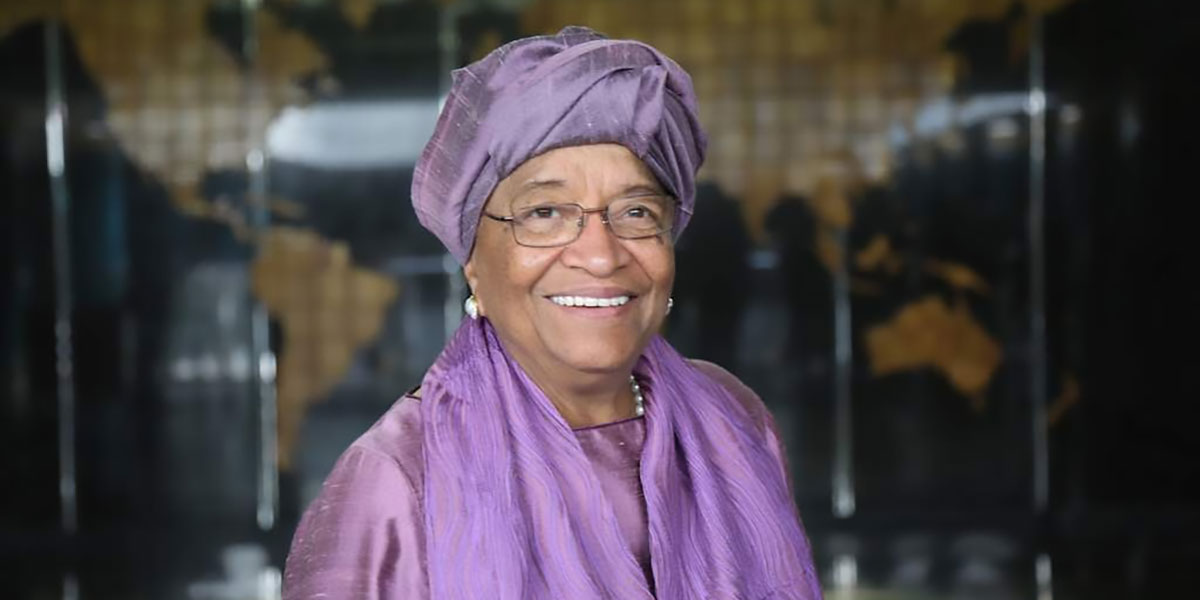The COVID-19 pandemic – with more than 5 million infected and over 300 000 deaths worldwide to date – is a painful human tragedy. Even in this period of sadness, we are being reminded of many important lessons, which we may also use to prevent conflicts and wars.
Silencing the guns requires a multitude of actors, and commitments, including the involvement of women through the full implementation of SC Resolution 1325. @MaEllenSirleaf
Tweet
The first is that women’s leadership, or their participation in gender-equal governance, has often made the difference in this fight. This year, we celebrate the 25th anniversary of the Beijing Platform for Action, as well as the 20th anniversary of Security Council Resolution 1325 on Women, Peace and Security. These milestones offer a chance to reflect. My hope is that the reflections will further pave the way for increased women’s leadership and strengthen our efforts to protect traditionally marginalised and vulnerable groups – which are often women, children and persons with disabilities – trapped by conflicts.
Second, the virus is a pandemic – without regional and global solidarity, the whole world will be more deeply and tragically affected. From global health and human development to peace and climate change, we need more multilateralism, not less. Only by working together can we find the cures for our common challenges and make the world safer, better and more peaceful.
From global health and human development to peace and climate change, we need more multilateralism, not less. Only by working together, can we make the world safer, better and more peaceful. @MaEllenSirleaf
Tweet
Third, leaving impoverished nations out of ongoing medical research – and hopefully, the development of needed cures – will not mean that wealthier ones can continue to live in a protected bubble.
Fourth, we face an urgent need to reset the world to higher standards of international cooperation and peace as the most enduring and sustainable path to successfully confronting our common challenges, as well as to ending ongoing conflicts and preventing future ones.
As a Liberian, I am grateful to ECOWAS, the African Union and the United Nations for supporting the interventions that helped to broker and bring peace to my country. However, in my country, like in many places of ongoing conflicts, the fault lines and signs were visible for many years. Simply put, protecting human rights, ending impunity and the use of preventive diplomacy are crucial to stopping conflicts before they rage into full conflagrations. We must not ignore the many signals today and delay actions that are required to prevent conflicts.
Today, no one can dispute that women’s leadership in this crisis has pushed aside a silo mentality and is the impetus for ensuring global solidarity and cooperation in the response to the virus. Women are mobilising in their communities, in their countries and across Africa, as they were the first to understand that the virus sees all human beings as the same. Each of us is as vulnerable as the other – a terrible equality.
I am not surprised by the mobilisation – this is the norm for us women – we know we just have to do the best with whatever we have. Refugees and displaced women are our heroines in this respect. Women don’t want to be praised for sacrifices and then left out of decision-making. We also should not be left out of the allocation of funds mobilised for the COVID-19 response.
Women don’t want to be praised for sacrifices and then left out of decision-making. @MaEllenSirleaf
Tweet
Many have spoken of the COVID-19 pandemic as a time to push the reset button – a reset which would ensure that gender equality is the norm and that women leading would become the new ‘traditional’. If the world is recognising that women’s leadership is critical for our survival in a post-COVID world, then the suffering, sorrow and sacrifices we are all facing may not have been in vain.
But we want humankind to do more than just survive – it is really the time that we look at the inequalities, impoverishment and impunity in our countries and make our societies more equal. It is also the time that we all become voices for a cleaner and greener Earth. These are some of the ways we can turn the crisis, in all its magnitude, into an opportunity.
This pandemic has humbled all of us. And it has given us our greatest test in living memory. The truth, also, is that it is not beyond us to pass this test. However, how we pass this test will redefine the course of human history. Let us not fail ourselves, and posterity.
I do not know how many will be infected, or how many lives will be lost, or where growth projections and human development indices will be, before this pandemic ends. But I do know – as if we needed further proof – that we are more connected and interdependent than we have allowed ourselves to believe, and have committed ourselves to act together. I know, like others have said, that the world as we know it, and our lives, will change. It is now upon us to ensure that the changes are for the better – for the good of humanity.
Ellen Johnson Sirleaf, former President of Liberia and Nobel Laureate.

